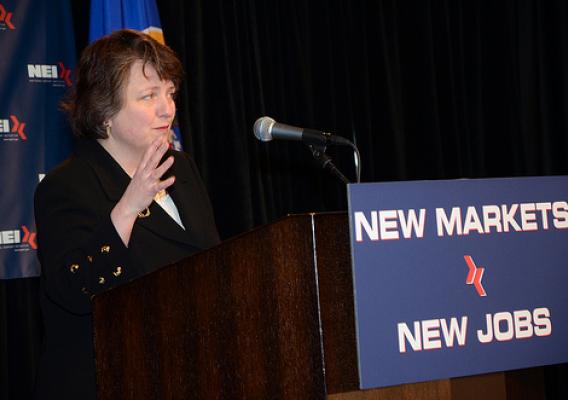Cross posted from the White House blog:
Twenty business leaders from Mexico, Missouri, joined me at the Mid America Brick plant recently for the first White House Business Council Roundtable meeting in Missouri. President Obama asked me, along with other senior Administration officials, to facilitate a discussion to seek their input on ways the federal government can improve economic conditions and help them create jobs.
When you think of “bricks and mortar” for cementing economic development, there is no better place than the heartland of America at a brick plant for a setting. Mexico, Missouri, was once known as the brick capital of the world, but its biggest factory shut down in 2002. An energetic entrepreneur, Frank Cordie, CEO of Mid America Brick, is bringing it back to life. Mr. Cordie graciously hosted and assisted with inviting key business leaders from the region. His company is using USDA funding, as well as other financing, to restore this icon of the local business community, which at one time was the main employer in this rural town. A tour of the plant made me believe he is well on the way to success. I have never found a more committed group of leaders to their community.



